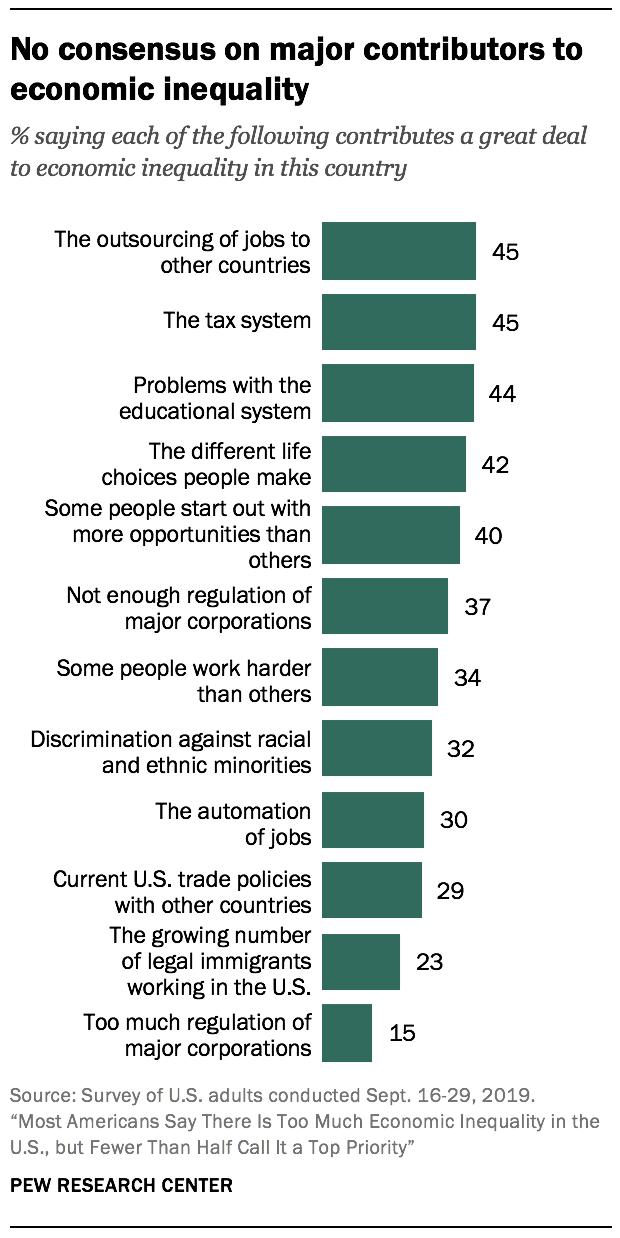
More than four-in-ten Americans say the outsourcing of jobs to other countries, the tax system, and problems with the educational system contribute a great deal to economic inequality in the United States. But many also point to personal factors, such as the different life choices people make and some people working harder than others.
Republicans and Republican leaners are far more likely than Democrats and those who lean to the Democratic Party to point to personal factors as major contributors to economic inequality. Democrats, meanwhile, are more likely than Republicans to say structural barriers like racial and ethnic discrimination and lack of opportunity contribute a great deal to inequality.
More Americans cite outsourcing than automation as a contributor to economic inequality
The survey asked U.S. adults how much, if at all, several measures contribute to economic inequality in this country. Across all measures asked, there is no single measure where a majority of Americans say it contributes a great deal to inequality. Roughly equal shares point to a series of structural issues including the outsourcing of jobs to other countries (45%), the tax system (45%) and problems with the educational system (44%).
And about four-in-ten cite factors such as the different life choices people make (42%) and the fact that some people start out with more opportunities than others (40%).
When it comes to jobs, more Americans say outsourcing is a major contributor to economic inequality than automation (45% vs. 30%). And far more adults cite not enough regulation of major corporations than say too much regulation of major corporations contributes a great deal to inequality (37% vs. 15%).
Republicans are about twice as likely as Democrats to cite different life choices people make as contributing a great deal to economic inequality
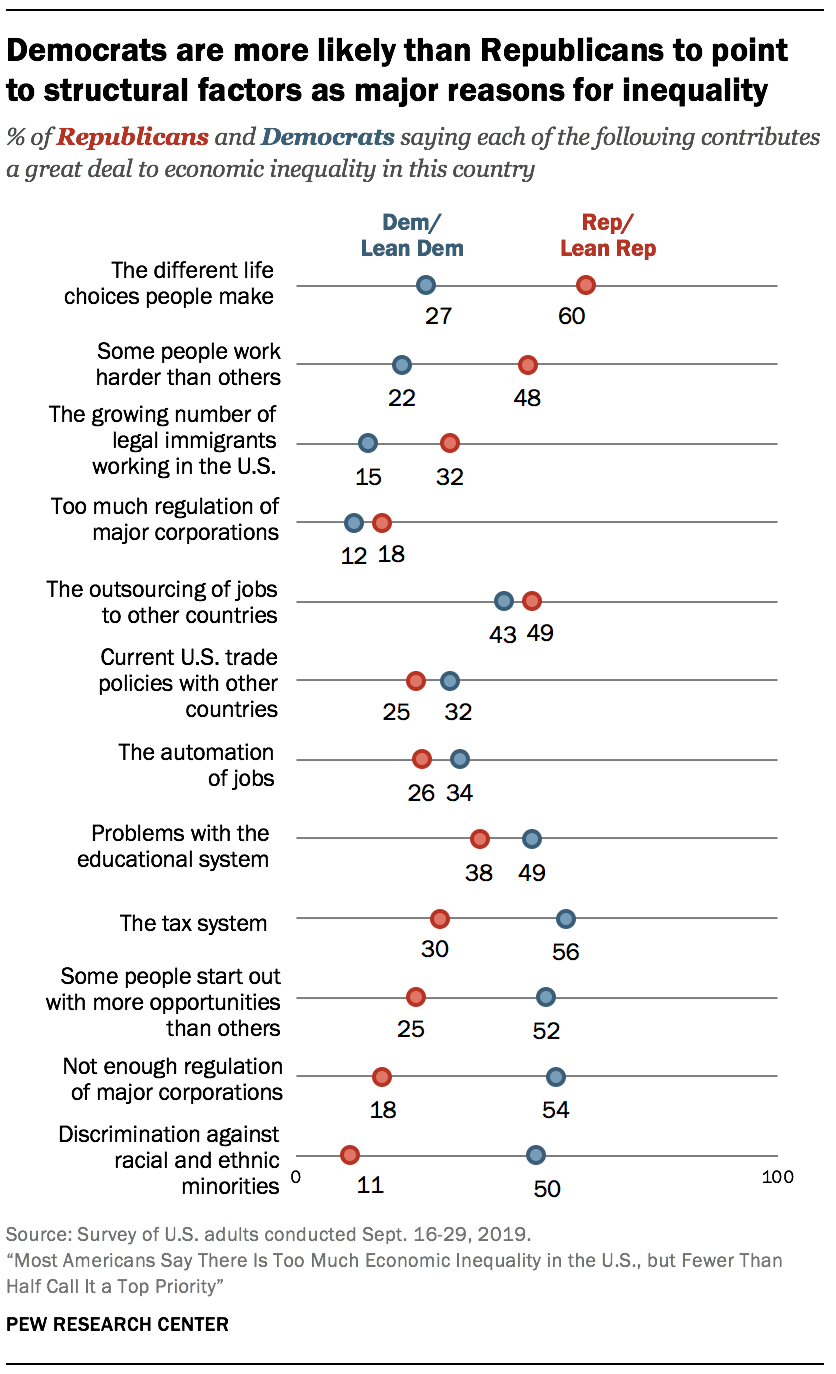
Six-in-ten Republicans say that the different choices people make contribute a great deal to economic inequality. By contrast, just 27% of Democrats say this. Republicans are also more likely than Democrats to see some people working harder than others as a major contributor to inequality (48% vs. 22%).
Meanwhile, half of Democrats – compared with just 11% of Republicans – say discrimination against racial and ethnic minorities contributes a great deal to inequality in this country. By double-digit margins, Democrats are also more likely than Republicans to say the tax system, differences in opportunities and not enough regulation of major corporations contribute a great deal to economic inequality.
There are also divisions within the party coalitions. While a majority of Republicans overall (60%) say that people’s different choices in life contribute a great deal to economic inequality, lower-income Republicans (46%) are significantly less likely than Republicans with middle (63%) or higher (74%) incomes to say this.
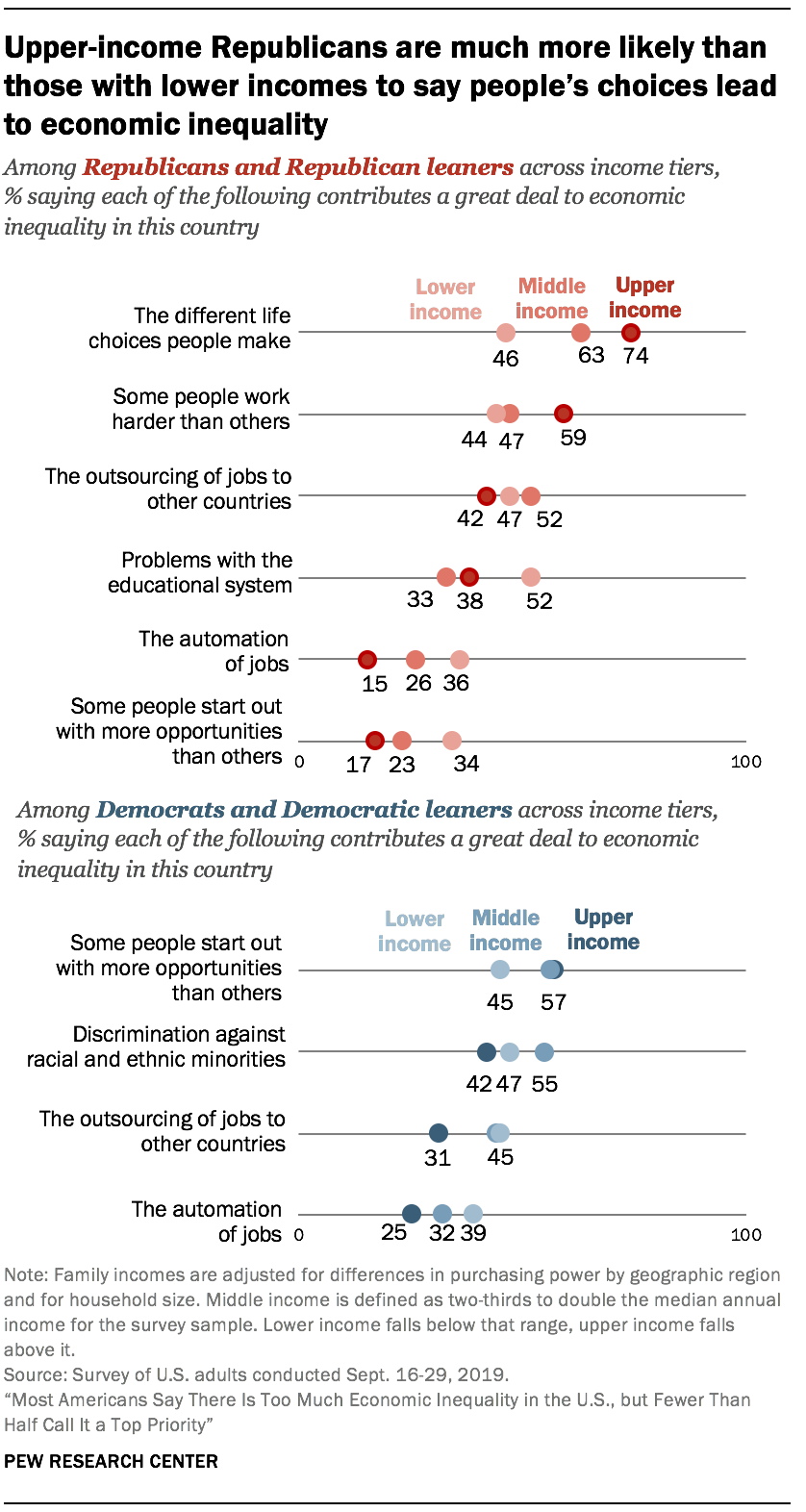
Lower-income Republicans are more likely than those with higher incomes to point to structural concerns. About half of lower-income Republicans (52%) say problems with the educational system contribute a great deal to inequality, compared with 38% of upper-income Republicans and 33% of middle-income Republicans. There is a similar pattern among Republicans when it comes to the automation of jobs.
Overall, there is less division among Democrats. However, upper-income Democrats are less likely than those with middle and lower incomes to say discrimination against racial and ethnic minorities, automation and outsourcing are contributors to economic inequality. For example, 39% of lower-income Democrats and 32% of those with middle incomes say that the automation of jobs is contributing a great deal to economic inequality, compared with 25% of upper-income Democrats.
Six-in-ten Americans say most people can get ahead if they are willing to work hard
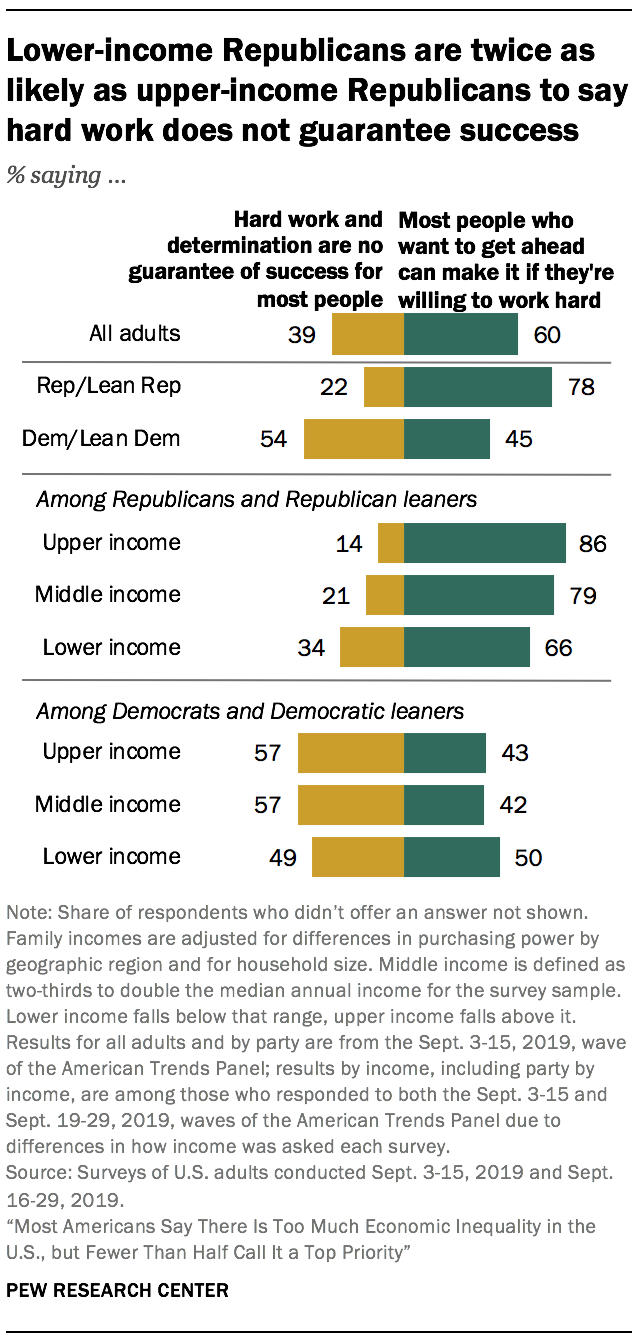
Another recent Pew Research Center survey on Americans’ values finds that a majority of Americans (60%) say that most people who want to get ahead can make it if they’re willing to work hard, while 39% say hard work and determination are no guarantee of success for most people. A majority of Republicans (78%) say most people can get ahead if they work hard, while about one-quarter (22%) say hard work is no guarantee of success. A slim majority of Democrats say hard work does not guarantee success (54%), but a sizable share (45%) say most people who want to get ahead can make it if they work hard.18
Among Republicans, views differ by income, though majorities of all groups say that most people can get ahead if they work hard. Still, one-third of those with lower incomes (34%) say hard work and determination are no guarantee of success, compared with 21% of middle-income Republicans and just 14% of those with upper incomes. Lower-income Democrats are about evenly divided, while larger shares of middle-income and upper-income Democrats say hard work is not a determination of success.
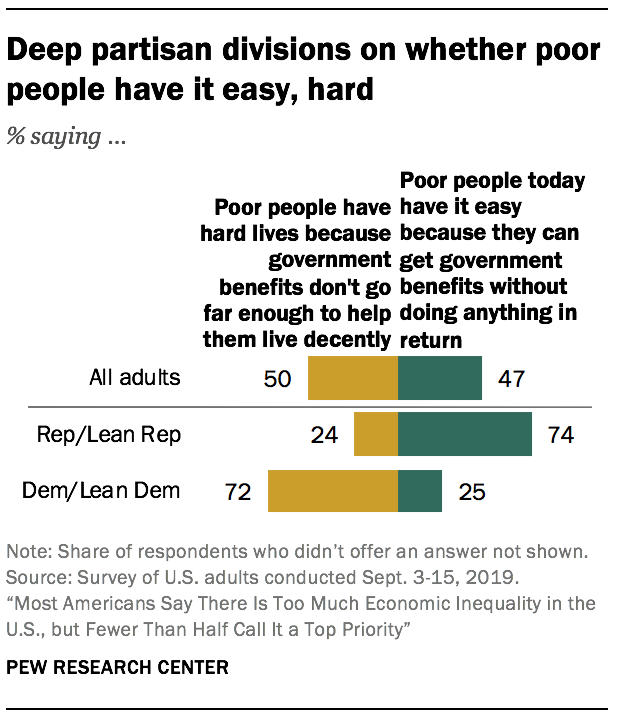
Americans are divided when it comes to whether poor people have it easy or hard these days. Half of Americans say poor people have hard lives because government benefits don’t go far enough to help them live decently and a similar share (47%) say poor people today have it easy because they can get government benefits without doing anything in return.19
Democrats and Republicans hold diametrically opposing opinions on this issue. About three-quarters of Democrats (72%) say that poor people today have hard lives. The same share of Republicans say that poor people today have it easy.




